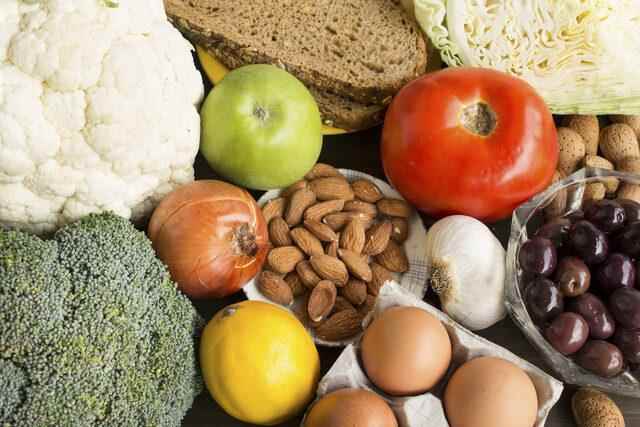According to studies, zinc, which is one of the minerals that the body needs most, needs to be taken in certain amounts on a daily basis. Everyone from 7 to 70 needs to take a certain amount of zinc on a daily basis. Although it varies according to gender and age, the daily zinc requirement for infants is 7 mg, the daily zinc requirement for children is 11 mg, and the daily zinc requirement for adults is 15 mg.
KEY TO THE IMMUNE SYSTEM
Zinc, which plays a key role in the immune system, is involved in the production of many enzymes and hormones in our body. For this reason, zinc is very important for sexual health.
WHAT HAPPENS WITH ZINC DEFICIENCY?
How do we understand the decrease in zinc, which is influenced by many factors, from the way the food is cooked to stress? What diseases are seen in zinc deficiency? How do we fix the zinc deficiency? Which foods contain zinc?

Although zinc deficiency is often caused by not consuming enough zinc-containing foods, those who take certain medications are also exposed to zinc deficiency. Zinc deficiency is more common in women who use birth control pills, menstrual regulators, or take postmenopausal hormone supplements. Zinc deficiency is also seen in those who use excessive alcohol, use drugs that reduce stomach acid, and in the elderly. Zinc is also a mineral that vegetarians should pay attention to, as it is found in high amounts in red meat and seafood.
WHAT ARE THE SYMPTOMS OF ZINC DEFICIENCY?
The biggest symptom of zinc deficiency can be observed from hair and skin problems. Hair loss and lifeless hair are symptoms of zinc deficiency. At the same time, your skin becomes dull and pale. You will see as much lightening as you can notice in the color of your skin.

You can also detect zinc deficiency, also known as the beauty vitamin, from your nails. White spots on the nails and brittle nails are a sign of zinc deficiency.
RINGING IN YOUR EARS IS A SIGNAL
The deficiency of zinc, which has the ability to reduce inflammation in the body, can also be understood from herpes in the mouth. At the same time, delayed healing of skin wounds, nervous system disorder and ringing in the ears are also symptoms of zinc deficiency. Zinc deficiency also manifests itself with diarrhea, excessive lack of strength, sexual reluctance, frequent infectious diseases due to weakened immune system, memory impairment and distraction.

CAN CAUSE SEXUAL REluctance
Zinc deficiency causes macular degeneration, gingival diseases, and decreased appetite. Zinc deficiency, which causes a decrease in the testosterone hormone in men, can also lead to sexual reluctance.

ZINC DEFICIENCY CAN CAUSE DIABETES
Zinc increases insulin sensitivity. Having a high insulin sensitivity makes it difficult for you to gain weight and ensures that the foods you eat reach your muscles in a healthier way. Zinc deficiency increases the risk of obesity and diabetes.
ZINC DEFICIENCY MAY CAUSE CANCER
With zinc deficiency, cell renewal and healthy division process in the body is impaired. This, unfortunately, reduces the body’s fight against cancer. Studies reveal that the types of cancer thought to be associated with zinc deficiency are breast, colon cancer, ovarian cancer, lung cancer, skin cancer and blood cancer. In zinc deficiency, the functions of immune cells that fight cancer cells also deteriorate, which also causes vulnerability to bacteria and viruses.
ZINC DEFICIENCY CAN CAUSE INfertility
It is known that zinc regulates the metabolism of melatonin, known as the sleep hormone, and helps a healthy sleep. At the same time, zinc regulates the level of the hormone dopamine. According to studies, it is known that zinc prevents depression, especially in women. At the same time, zinc deficiency can also cause infertility, as it inhibits egg development in women. Estrogen and progesterone hormones are at healthy levels with adequate zinc intake.
IN WHICH FOODS IS ZINC FOUND?
Zinc is abundant in red meat and seafood. It is also found in dark green leafy vegetables such as spinach and purslane, pulses and nuts. The foods with the highest amount of zinc are as follows: Oyster, cheese, beef, dark chocolate, dried beans, corn, shrimp, Brussels sprouts, broccoli, chickpeas, yogurt, cashews, fish, wheat germ, sunflower seeds, whole grains, walnuts, almonds, eggs…

WHAT DOES EXCESS OF ZINC CAUSE?
Excess zinc can be just as harmful as its deficiency. High intake of zinc leads to zinc poisoning. It is known that the upper limit of zinc intake for adults is 40 milligrams.
Headache, nausea, vomiting, diarrhea, loss of appetite and abdominal cramps can be seen in excess.
